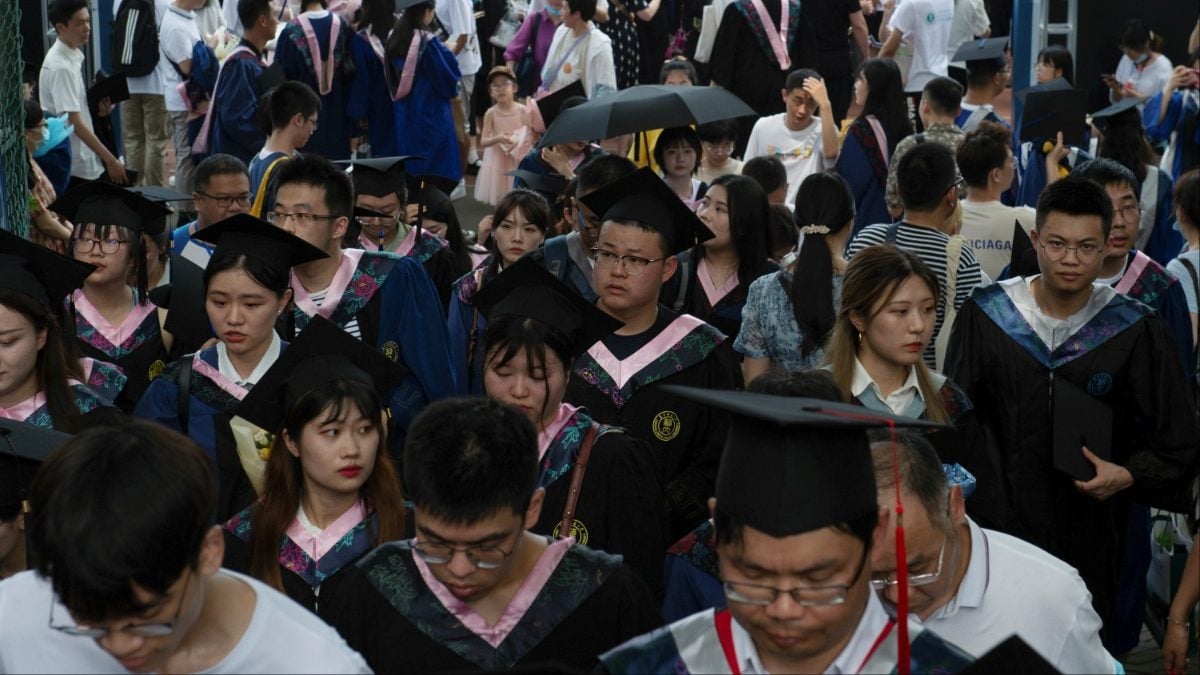China is asking its recent graduates to gain experience in a teaching environment and seek an adventure far from home. The graduating class of 2023 has been given the option to work in impoverished rural areas, the Guardian said.
What do they get in return? Job security. But they also have to work for long hours, have a limited social life and make do with poor infrastructure in remote locations where even running water is not guaranteed.
Youth unemployment is at a record high and more than 11.5 million students are moving into a jobs market that already looks saturated. In June 2023, at least 21.3% of 16- to 24-year-olds in urban areas were without a job, according to Chinese government data.
Some economists estimate that the number of jobless youth could be higher.
These young graduates could go for private tutoring jobs but new rules have been implemented which bars for-profit tutoring in core subjects. Some other regulations have also been announced which has contributed to the high joblessness rate.
Real estate and technology sectors are also facing similar problems.
The young graduates are not keen to go to remote areas and toil, while they joke online that their degrees are worthless. The Chinese government said China’s Gen Z are being too picky, the Guardian said in its report.
The Communist Party of China (CPC) in March told young graduates to “roll up their sleeves and go to the farmland”. Even President Xi Jinping said youngsters should “eat bitterness” to “create a better China”, “eat bitterness” is a Chinese metaphor for enduring hardship.
“When you are young, if you choose hardship, you will choose harvest, and if you choose dedication, you will choose nobility,” an editorial piece, from the state-run People’s Daily, the official newspaper of the Chinese Communist party, said.
Students responded strongly to the editorial on Chinese social media, even daring to go against the censorship rules. “This group of assholes really has been estranged from the masses for far too long,” a comment, archived by China Digital Times, read.
Experts speaking to the Guardian said that this is likely to remind the older generation of the Cultural Revolution led by Mao Zedong, Chinese dictator. However, the young generation does not agree with the idea of being sent to the countryside where they would toil in the farms which would in turn help them build their character.
“This generation has been through a very tough education before university, so when we consider whether to work in the cities or countryside, we prefer a more relaxed working environment. Like many Chinese young people, I don’t want to work in the countryside,” Candice Zhang, a 25-year-old, who graduated and recently found a job, was quoted as saying by the Guardian.



